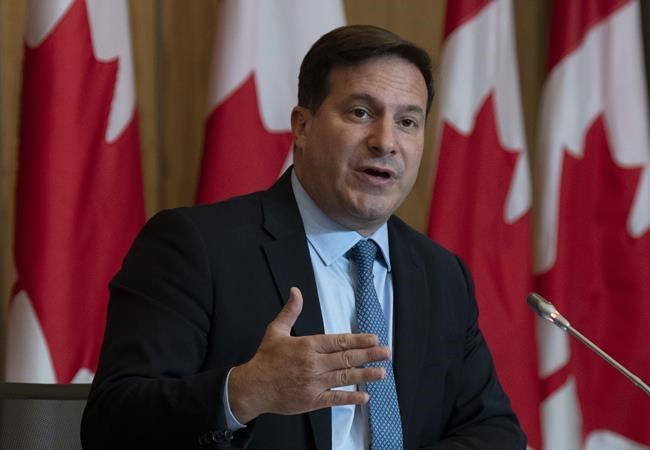OTTAWA — The Liberals say it's up to national security agencies to decide whether Canada deems a branch of Iran's military to be a terrorist group, which the Conservatives are calling a cop-out.
Members of Parliament passed a motion in 2018 to designate the Islamic Revolutionary Guard Corps as a terrorist organization, but it remains off the list.
With Iranians facing a violent human-rights crackdown, the Conservatives have renewed their calls to have the Revolutionary Guards listed as a terror group.
The United States has put the group on its own terror list, but Canada has only singled out a subset of the organization, the Quds Force.
Neither Prime Minister Justin Trudeau nor Foreign Affairs Minister Mélanie Joly would explain why when they were repeatedly asked about it this week.
Public Safety Minister Marco Mendicino's office says the decision is not up to politicians.
"Determining whether a group constitutes a terrorist entity is a careful, non-political process undertaken by Canada’s natural security agencies," spokesman Alexander Cohen wrote.
"These agencies are continuously working to identify and assess entities that may meet the threshold for listing.”
Jessica Davis, a former analyst for the Canadian Security Intelligence Service, said in an email that cabinet does decide which groups are put on the terror list, but only after security agencies brief the public safety minister.
She said CSIS and the RCMP usually draft what's called a "listings package," based on their own knowledge as well as information from the financial intelligence agency FINTRAC, the Communications Security Establishment, Canada Border Services Agency and Global Affairs Canada.
"Parliament does not vote on terrorist listings," wrote Davis, who now leads Insight Threat Intelligence.
"Sometimes members (of Parliament) call on the government to list a particular entity, but that is a meaningless vote with no power to impose a listing."
Michael Chong, the Conservative critic for foreign affairs, said the Liberals should still deem the group a terrorist organization, regardless of what intelligence agencies advise.
"The minister should take guidance and advice from a variety of experts, and not just the experts in the intelligence community," Chong said, citing government departments and intelligence allies.
He noted that the U.S. has listed the Revolutionary Guards, and with Canada is part of the Five Eyes security alliance.
He stressed that a minister ultimately decides which groups are placed on the list.
"The government is hiding behind an excuse that has no ground," Chong argued.
He called on the Trudeau government to sanction more Iranians and ban them from getting visas to enter Canada, which some associated with human-rights abuses have managed to do.
Chong noted the Liberals at one time sought to reverse the Harper government's 2012 suspension of diplomatic relations with Iran.
"This lack of political will is reflective of a government that's extremely naive about the threat that Iran poses, not only to international peace and stability but its own people," he said.
Analysts have said that Canada does not have the capacity to designate the entire Revolutionary Guard Corps as a terrorist group. That's because millions of Iranians have been conscripted into the organization over decades, making it too complicated and expensive to track each individual.
While the group is known to have carried out atrocities within Iran and abroad, many of its members served for brief stints and in roles that do not involve combat or intelligence.
This report by The Canadian Press was first published Sept. 28, 2022.
Dylan Robertson, The Canadian Press




